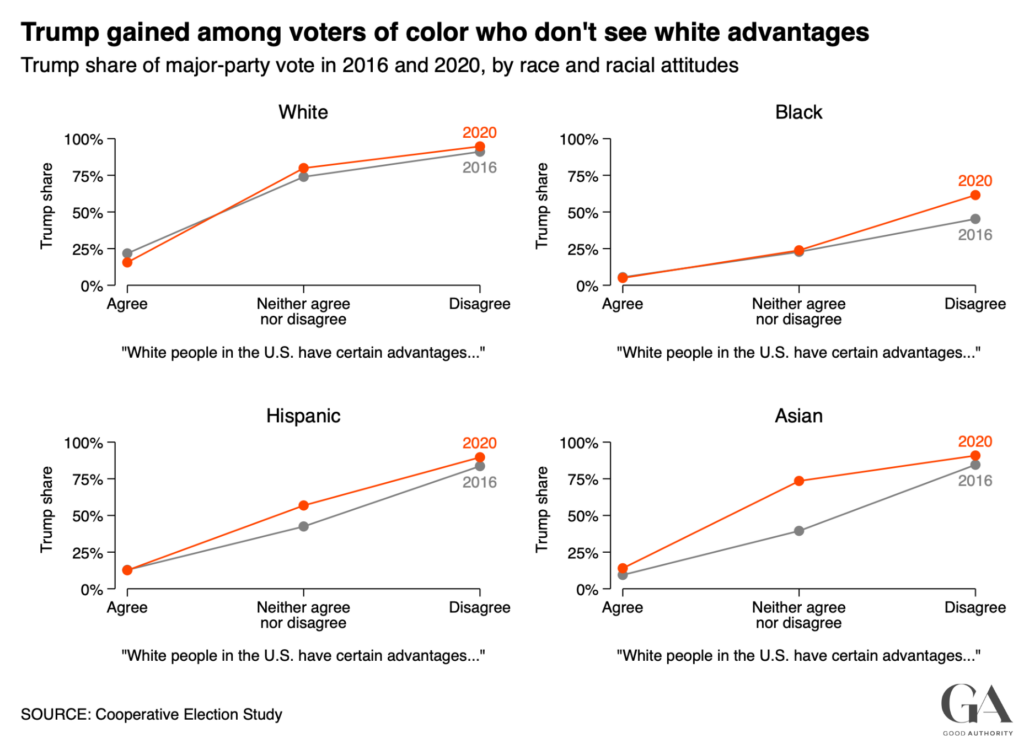Some interesting data on racial and gender demographics in annual polling. I'm sure some here already have an idea what the results are but I think it's important to point out how black people particularly black men are not flocking to the republican party as some of our educated elite claim.
America is less polarized by race – but more polarized about race

TLDR:
But at the same time, it is premature to attribute these shifts among voters of color to “class” or to being “working class.” Any measures of class – income, education, occupation, etc. – is conflated with attitudes. People with different educational backgrounds may be of different social classes, but they will also have different beliefs about any number of issues, and especially racial issues.
Ultimately, our findings provide an important reinterpretation of any “racial realignment” in the U.S. If voters of color are shifting durably toward the Republican Party, this most certainly does not make race less important, if race is defined as “what people think” not just “what group they belong to.”
In fact, racial attitudes are becoming more strongly correlated with political attitudes, among white voters and voters of color alike.
America is less polarized by race – but more polarized about race

TLDR:
The takeaway
Note that we have been making descriptive claims, not causal claims. We have shown what kinds of people of color may be shifting to the Republican Party. They are people with more conservative attitudes on race. But this does not mean that racial attitudes are causing these shifts, or, if they are, that racial attitudes are the only factor.But at the same time, it is premature to attribute these shifts among voters of color to “class” or to being “working class.” Any measures of class – income, education, occupation, etc. – is conflated with attitudes. People with different educational backgrounds may be of different social classes, but they will also have different beliefs about any number of issues, and especially racial issues.
Ultimately, our findings provide an important reinterpretation of any “racial realignment” in the U.S. If voters of color are shifting durably toward the Republican Party, this most certainly does not make race less important, if race is defined as “what people think” not just “what group they belong to.”
In fact, racial attitudes are becoming more strongly correlated with political attitudes, among white voters and voters of color alike.


